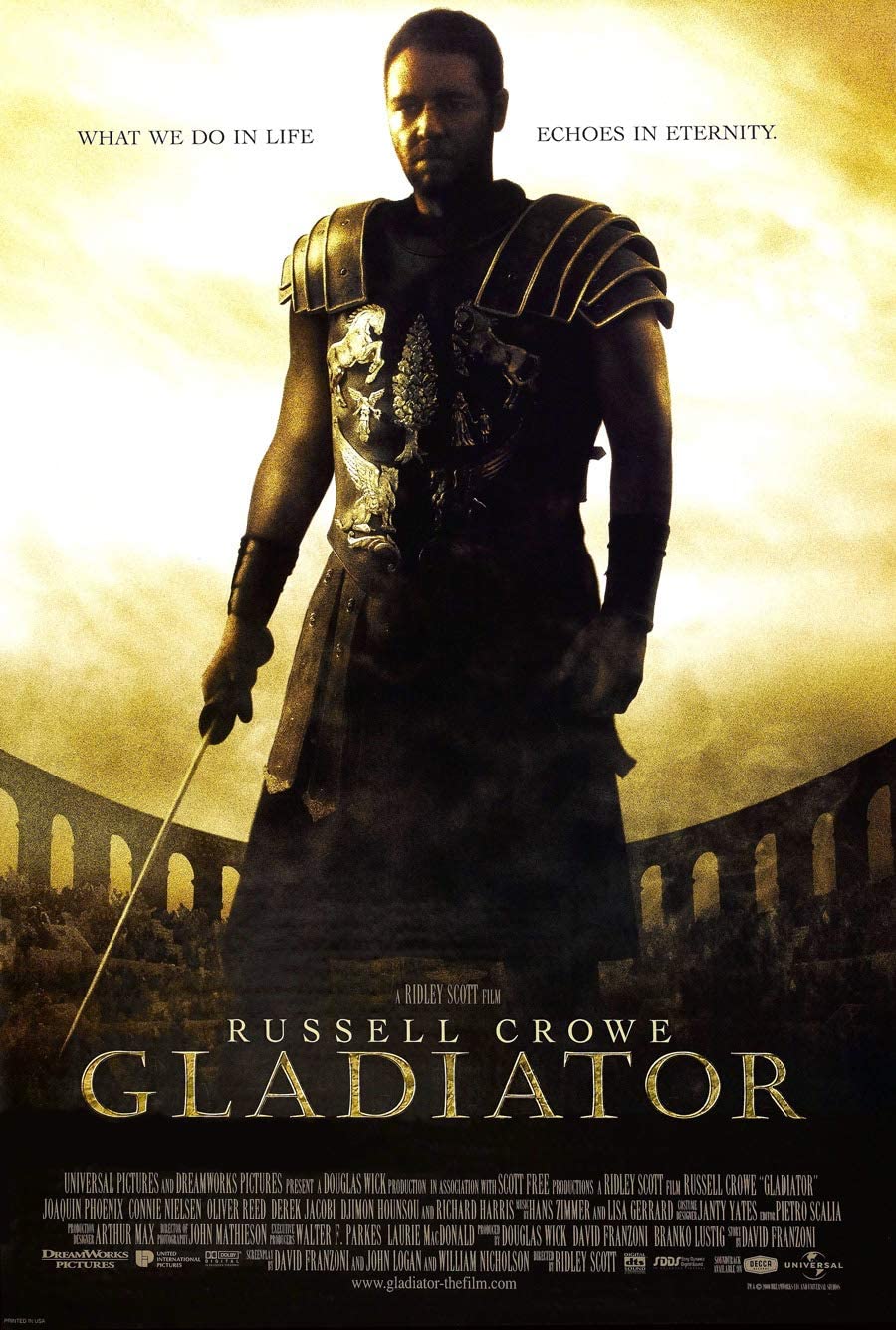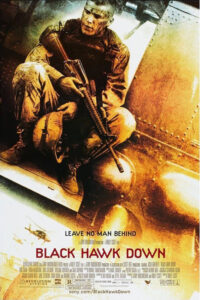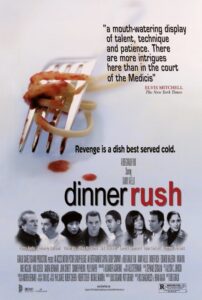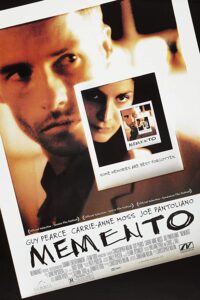The Skinny
In playing a general who becomes a slave who becomes a gladiator who becomes a hero, Russell Crowe becomes a star.
The Bottom Line
Two and a half-hours of action-packed and drama-filled entertainment on an epic scale.
The Full Review
The much-anticipated Gladiator finally arrived in theaters this weekend. The big question on the mind of many critics was whether or not this film would, in any way, measure up to the sweeping Roman epics of the late 1950’s and 1960’s. As a film devotee, I’m somewhat embarrassed to admit that I’ve seen neither the legendary Ben-Hur nor Stanley Kubrick’s Spartacus. In fact, the closest I’ve come to having seen anything on film that falls remotely within that genre is Mel Brooks’ amusing interpretation of life in the days of the Roman Empire in his 1981 film History of the World: Part One. But let’s face it, the creators of Gladiator were not aiming to make Ben-Hur: 2000 (that would have virtually ensured failure) and they certainly did not spend in excess of $100 million to make a silly satirical comedy. So, it is only fair that this film be judged based on its own merits, and not be measured against its Roman-themed predecessors.
The film stars Russell Crowe (The Insider, L.A. Confidential, Virtuosity) as a fearless Roman General named Maximus, whose loyalty and commitment to Rome has earned him the love and respect of Emperor Marcus Aurelius. Maximus is taken from his wife and son and banished into slavery by the Emperor’s jealous son and heir to the throne, Commodus, played by Joaquin Phoenix (Clay Pigeons, To Die For, Inventing the Abbotts). After being trained as a gladiator by his master, Proximo, played by Oliver Reed, Maximus is brought to Rome to do battle in the Colosseum. He must then fight to avenge the misery that has been thrust upon him by Commodus and to ensure Marcus Aurelius’ dying wish for a corruption-free Rome.
Ridley Scott, whose career has bee marked by both notable box office/critical successes (Alien, Thelma & Louise, Blade Runner) and failures (G.I. Jane, White Squall), ably directed Gladiator, a film that is grand in almost every way. The film contains all the requisite ingredients of a true epic: elaborate battle sequences, majestic settings, lavish costumes, breathtaking cinematography, a dramatic musical score and spectacular digitally enhanced shots of an imposing Colosseum.
Most everything works quite well in this film, from Russell Crowe’s earnest performance to the well choreographed and at times rousing scenes of combating gladiators. Even the film’s three different screenwriters managed to cobble together a fine enough script to ensure that there was some substance behind all of the film’s style. The story was engaging and espoused several positive themes – honor, loyalty, nobility, friendship, and heroism among others – without pandering to the audience.
But Gladiator is not without its flaws. Several of the film’s scenes were shot to appear almost as if they were occurring in a dream-like sequence – the result being a bizarre and out-of-place effect. More notable was the film’s big opening scene in which Maximus leads the Roman army into battle against their Germanian foes. Mr. Scott throws the audience right into the middle of the frenzied action on the battlefield, seemingly attempting to create the same dramatic and shocking effect that Steven Spielberg created in the opening battle scene on Normandy in Saving Private Ryan. The result is five hazy minutes of mainly faceless images flashing across the screen at such close range and at such dizzying speeds that I nearly lost interest in what I was watching.
On the whole, Gladiator was an impressive effort from all parties involved, most notably Russell Crowe, who will finally be catapulted to the star status he has deserved since his gritty performances in L.A. Confidential and The Insider.
Highlights
- A strong cast anchored by standout performances from Crowe and Oliver Reed
- Terrific gladiator combat scenes
- (Some critics, however, have curiously expressed their distaste for these scenes by likening them to something out of a WWF wrestling match or an arena football game. As if to imply that they know what gladiator combat was really like. I guess these critics have actually spent time hanging out at the Colosseum in 180 A.D. watching real gladiators in combat. Or maybe it’s just that watching all of that wrestling has begun to cloud the judgment of these critics.)
- The previously mentioned cinematography, costumes and visual effects
Lowlights
- The action in the opening battle scene was difficult to follow
- The movie drags, only briefly, about halfway through the story
Other Info
- Nudity: None.
- Violence: Loads.
- Humor: Minimal.





